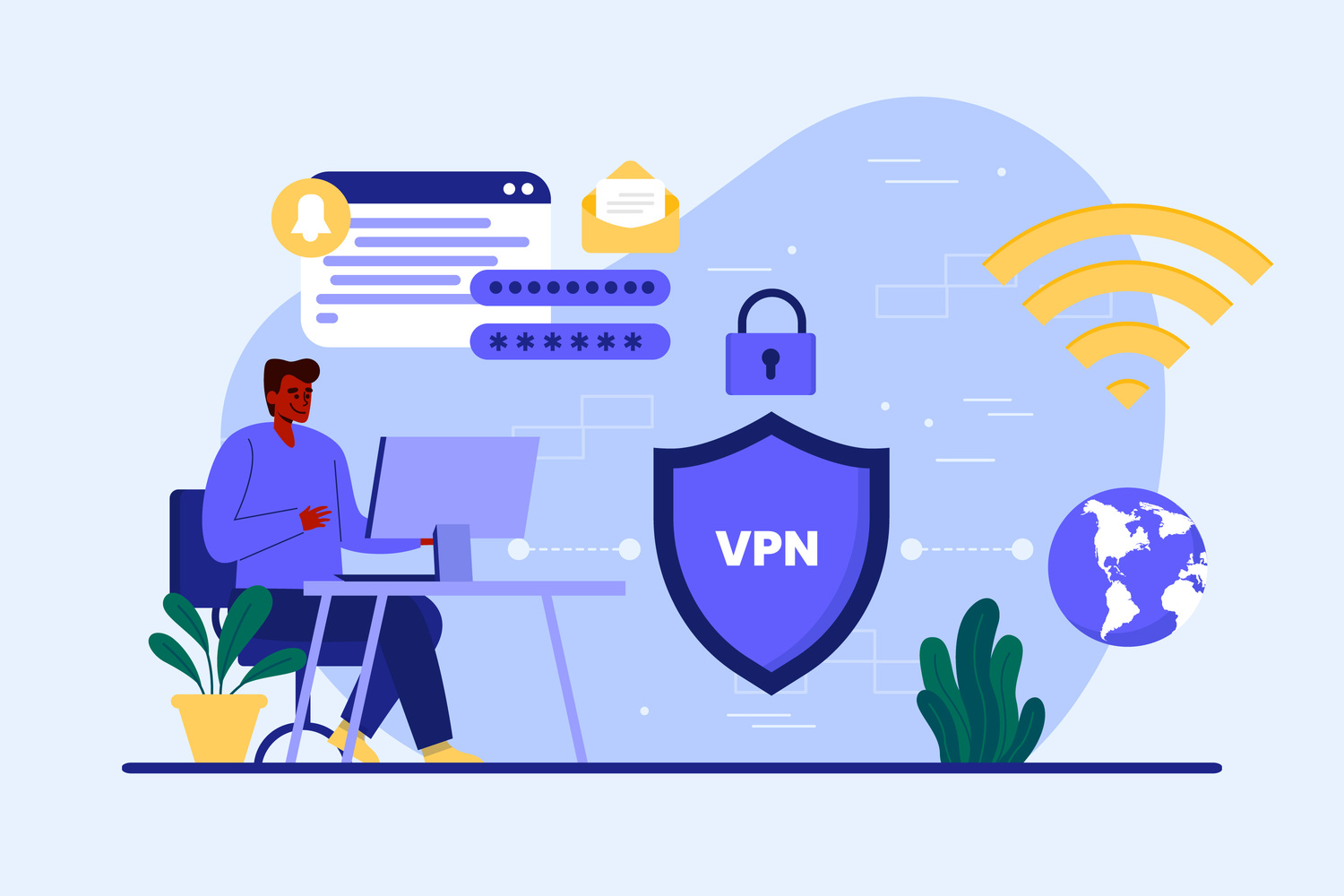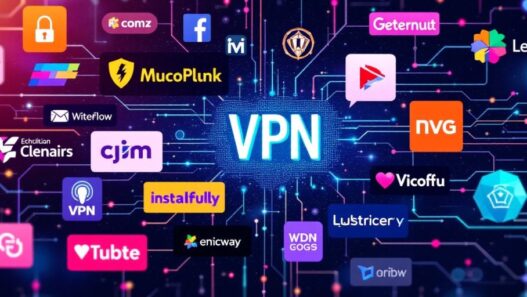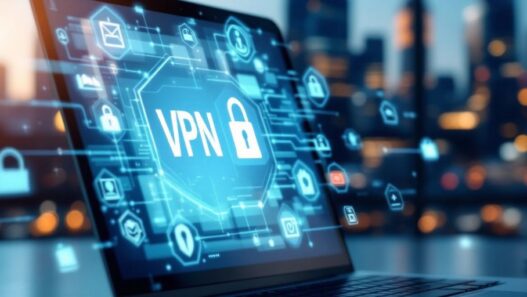The Impact of 5G on VPN Performance and Reliability

As 5G technology continues to roll out, it is reshaping how Virtual Private Networks (VPNs) operate. VPNs are essential tools for securing online activities, providing privacy, and enabling access to restricted content. With the advent of 5G, users can expect significant improvements in VPN performance and reliability.
Enhanced Speed and Reduced Latency
5G networks offer remarkable speed improvements, allowing VPNs to function more efficiently. Users can experience faster downloads and smoother streaming, making it easier to work remotely or enjoy entertainment without interruptions. The table below illustrates the potential speed differences:
| Network Type | Average Speed (Mbps) | Latency (ms) |
|---|---|---|
| 4G | 20-100 | 30-50 |
| 5G | 100-1000 | 1-10 |
Improved Connection Stability
With 5G, users can expect better connection stability. This means fewer dropped connections and a more reliable experience when using VPNs. The enhanced infrastructure of 5G networks supports a larger number of devices, reducing congestion and improving overall performance.
Challenges in Maintaining Security
While 5G brings many benefits, it also introduces new challenges for VPN security. The increased number of connected devices can create more entry points for cyber threats. VPN providers must adapt their security measures to address these vulnerabilities effectively.
Adaptations in VPN Technology
To keep up with the advancements in 5G, VPN technology is evolving. Providers are integrating features like improved encryption and advanced threat detection to ensure user data remains secure. This evolution is crucial as more people rely on VPNs for both personal and professional use.
In conclusion, the 5G impact on VPN usage is profound, leading to significant VPN speed improvements and enhanced reliability. As users embrace these changes, it is essential to choose a VPN service that can leverage the benefits of 5G while maintaining robust security. For those looking to enhance their online experience, exploring top VPN services is a wise choice. Stay ahead in the digital landscape by adopting a VPN that meets the demands of the 5G era.
Emerging Trends in VPN Usage with 5G Networks

As 5G technology continues to roll out, it is reshaping how VPNs are used and perceived. VPNs and 5G are becoming essential tools for enhanced connectivity, allowing users to enjoy faster and more reliable internet access. This evolution is driven by several key trends:
Integration of AI and Machine Learning
- AI and machine learning are being integrated into VPN services to enhance security and performance.
- These technologies help in detecting unusual activities and adapting security measures in real-time.
- This proactive approach reduces the risk of cyberattacks and data breaches.
Adoption of Zero-Trust Security Models
- The zero-trust model requires continuous verification of user identities, ensuring only authorized users can access sensitive data.
- This approach is crucial in a world where remote work is becoming the norm.
- It shifts the focus from perimeter security to individual user verification.
Rise of Cloud VPNs
- Cloud VPNs are gaining popularity due to their scalability and flexibility.
- They allow businesses to securely connect remote employees to corporate networks from anywhere.
- This is especially important as more companies adopt hybrid work models.
Increased Demand for Remote Work Solutions
- The shift to remote work has created a surge in demand for secure and reliable VPN solutions.
- Businesses are looking for ways to protect sensitive information while enabling employees to work from various locations.
- VPNs provide a secure tunnel for data, ensuring privacy and security.
In summary, the combination of 5G technology and VPNs is paving the way for a more secure and efficient digital landscape. As these trends continue to evolve, businesses and individuals alike will benefit from enhanced connectivity and improved security measures.
Security Implications of Combining VPNs and 5G Technology
As 5G technology becomes more widespread, it brings both opportunities and challenges for Virtual Private Networks (VPNs). VPNs are essential tools for securing online activities, providing privacy, and protecting sensitive data. With the enhanced capabilities of 5G, the way VPNs operate and their security implications are evolving.
Addressing New Vulnerabilities
The rapid growth of 5G networks increases the number of potential entry points for cyber attackers. This means that VPNs must adapt to protect against new vulnerabilities that arise from the increased connectivity. Regular risk assessments and updates are crucial to ensure that VPN services remain secure in the face of evolving threats.
Role of Network Slicing
Network slicing allows multiple virtual networks to operate on a single physical infrastructure. This technology can enhance security by isolating different types of data traffic. For example:
- Public data traffic can be separated from sensitive information.
- IoT devices can have their own dedicated slices to minimize risks.
- Corporate networks can maintain strict security protocols without interference from other traffic.
Importance of Continuous Monitoring
With the dynamic nature of 5G, continuous monitoring of VPN connections is essential. This includes:
- Real-time threat detection to identify and respond to potential breaches.
- Regular audits to ensure compliance with security standards.
- User behavior analysis to spot unusual activities that may indicate a security threat.
Continuous vigilance is key to maintaining security in the fast-paced world of 5G.
Impact of Edge Computing
5G technology supports edge computing, which brings data processing closer to the user. While this can improve performance, it also raises security concerns. VPNs must ensure that data remains encrypted and secure as it travels through various edge devices. This requires:
- Strong encryption protocols to protect data in transit.
- Secure access controls to limit who can access sensitive information.
- Collaboration with telecom providers to enhance overall network security.
In conclusion, as 5G technology reshapes the landscape of online connectivity, VPNs must evolve to address new security challenges. By focusing on continuous monitoring, leveraging network slicing, and ensuring robust encryption, VPN providers can help users navigate the complexities of 5G securely.
Future Prospects for VPNs in the 5G Era
As 5G technology continues to roll out, it is reshaping the landscape of Virtual Private Networks (VPNs). VPNs are essential tools that help users maintain privacy and security while accessing the internet. With the Future of VPNs with 5G, several exciting trends and opportunities are emerging.
Potential for New Applications
- Enhanced Mobile Experiences: 5G’s high speeds and low latency will enable new applications that require real-time data transfer, such as virtual reality and augmented reality.
- IoT Integration: The Internet of Things (IoT) will benefit from VPNs, allowing secure connections for smart devices in homes and businesses.
- Remote Work Solutions: As remote work becomes more common, VPNs will provide secure access to corporate networks from anywhere.
Scalability and Flexibility
- Cloud VPN Growth: The demand for Cloud VPNs is expected to rise, with the market projected to grow from $9.3 billion in 2023 to $33.8 billion by 2030.
- Dynamic Resource Allocation: 5G networks will allow VPNs to allocate resources dynamically, improving performance and user experience.
- Support for Multiple Devices: With more devices connecting to the internet, VPNs will need to support a larger number of simultaneous connections.
Regulatory and Compliance Considerations
- Data Protection Laws: VPN providers will need to adapt to evolving data protection regulations, ensuring compliance while maintaining user privacy.
- Cross-Border Data Transfers: As businesses operate globally, VPNs must navigate complex regulations regarding data transfers across borders.
- Increased Scrutiny: Governments may impose stricter regulations on VPN usage, impacting how services are offered.
Collaboration Between VPN Providers and Telecoms
- Partnership Opportunities: VPN providers may collaborate with telecom companies to offer bundled services, enhancing user experience.
- Shared Infrastructure: By sharing infrastructure, both parties can improve service delivery and reduce costs.
- Innovative Solutions: Joint efforts can lead to the development of new security features and applications tailored for 5G networks.
In conclusion, the future of VPNs in the 5G era looks promising. As technology evolves, VPNs will play a crucial role in ensuring secure and reliable internet access. Now is the time to explore top VPN services that can help you stay safe online. Stay ahead of the curve and consider investing in a VPN that meets your needs.
Conclusion
In 2024, the rise of 5G technology is reshaping how we use VPNs. With faster internet speeds and better connections, people can work and play online more smoothly than ever. This means that VPNs are becoming even more important for keeping our data safe. As more people work from home and use public Wi-Fi, having a reliable VPN helps protect sensitive information from hackers. Companies are also adapting their VPN services to work better with 5G, making them faster and more secure. Overall, the combination of 5G and VPNs is creating a safer and more efficient online experience for everyone.
Frequently Asked Questions
What is 5G technology and how does it affect VPNs?
5G technology is the fifth generation of mobile network technology. It provides faster internet speeds and lower delays, which helps VPNs work better by allowing quicker connections and smoother online experiences.
Are there any security risks with using VPNs on 5G networks?
Yes, while 5G offers better speeds, it can also introduce new security challenges. It’s important to use strong VPNs that keep your data safe, especially since more people are online.
How is remote work changing with the rise of 5G and VPNs?
With 5G, remote work is becoming easier because people can connect to their work networks from anywhere without slowdowns. VPNs help keep these connections secure, making it safer for employees to work from home.
















